Top 25 Private Pharmacy Schools in the US

 6. Northeastern University School of Pharmacy, Boston, Massachusetts
6. Northeastern University School of Pharmacy, Boston, Massachusetts
Northeastern University ranks number 56 in U.S. News & World Report’s 2013 edition of Best Colleges, National Universities. Established in 1898, the school sits on a 73-acre campus and it has a student body of 21,257 full-time students. Northeastern University offers more than 250 graduate and undergraduate programs throughout nine colleges and schools. This includes the School of Pharmacy.
Housed within the Bouve College of Health Sciences, the School of Pharmacy was established in 1927 as the Mariano School of Pharmacy. The School offers the Pharm.D., and M.S. degrees in Medicinal Chemistry, Pharmacology, Pharmaceutical Sciences: Pharmaceutics and Drug Delivery Systems, and Pharmaceutical Sciences: Interdisciplinary Concentration.
The School also offers Ph.D. degrees in Medicinal Chemistry and Drug Discovery, Pharmacology, Pharmaceutical Sciences: Pharmaceutics and Drug Delivery Systems, and Pharmaceutical Sciences: Interdisciplinary Concentration.
Tuition for Northeastern University School of Pharmacy is $1,210 per credit hour.
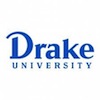 7. Drake University College of Pharmacy & Health Sciences, Des Moines, Iowa
7. Drake University College of Pharmacy & Health Sciences, Des Moines, Iowa
Founded in 1881 with just one building and 77 students, Drake University is now home to more than 5,400 students from 49 states and 50 countries. Consistently ranked among the Top Schools for Educational Quality by U.S. News & World Report, Drake University sits on a 150-acre campus and offers more than 90 academic programs across six colleges and schools.
Home to nearly 500 students, the Drake University College of Pharmacy & Health Sciences consistently ranks among the Top 100 Pharmacy Programs in the U.S. Offerings include a B.S. in Health Sciences with a Pharmaceutical Science track, the Pharm.D., and joint degree programs including a Pharm.D./Law degree, the Pharm.D./MBA, and the Pharm.D./MPA.
Tuition for the Drake University College of Pharmacy & Health Sciences is $17,175 per semester for years 1-3, and 19,328 per semester for year 4. Tuition rates are for full-time students taking 10-18 credit hours per semester. Part-time students (years 1-3) pay $700 per credit hour and $725 per credit hour for year 4.
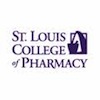 8. St. Louis College of Pharmacy, St. Louis, Missouri
8. St. Louis College of Pharmacy, St. Louis, Missouri
St. Louis College of Pharmacy (STLCOP) is the nations 10th largest college of pharmacy and one of the few pharmacy colleges to admit students directly from high school.
Founded in 1864, St. Louis College of Pharmacy is also the nations fourth oldest college of pharmacy. The College, which sits on an 8-acre campus, is home to 1,350 students and it offers the Pharm.D.
It is important to note that students entering the College directly from high school will complete the pre-professional program at St. Louis College of Pharmacy in three academic years (i.e. six semesters) and will progress into the four-year Pharm.D. program. Students that meet specified qualifications may choose the optional accelerated pre-professional program, which “allows them to complete the pre-professional curriculum (including requirements for the integrated BS degree and all prerequisite courses for the Doctor of Pharmacy degree program) in two years rather than the traditional three years.”
Tuition rates for St. Louis College of Pharmacy are: Year 1: Per semester (12 to 18 credit hours): $12,259. Individual credit hours (more than 18, less than 12, and Summer session): $805. Year 2: Per semester (12 to 18 credit hours): $12,114. Individual credit hours (more than 18, less than 12, and Summer session): $805. Years 3, 4 and 5: Per semester (12 to 18 credit hours): $13,304. Individual credit hours (more than 18, less than 12, and Summer session): $885. Year 6: Summer Semester: $8,870, Fall & Spring Semester: $8,869 (each semester). Individual credit hours (more than 18, less than 12): $885.
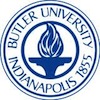 9. Butler University College of Pharmacy & Health Sciences, Indianapolis, Indiana
9. Butler University College of Pharmacy & Health Sciences, Indianapolis, Indiana
Founded in 1855, Butler University has a student body of 4,771 students and it offers more than 80 academic programs throughout six colleges. The school, which sits on a 295-acre campus, was named the No. 1 “Up-and-Coming” institution among Regional Universities-Midwest by U.S. News & World Report. In addition, the University is home one of the regions Top 100 Pharmacy Programs.
The top-ranked Butler University College of Pharmacy & Health Sciences was established in 1904. Offerings include the Pharm.D., a M.S. in Pharmaceutical Sciences, and several dual degrees. Dual degree offerings include the Pharm.D./MBA and the Pharm.D./MPS.
Tuition for Butler University College of Pharmacy is $643 per credit hour.
 10. Duquesne University Mylan School of Pharmacy, Pittsburgh, PennsylvaniaDuquesne University was established in 1878 as Pittsburgh Catholic College. Ranked among the nations Top 100 Popular Schools and voted one of America's Best Graduate Schools (2011), Duquesne University sits on a 49.5-acre campus and it is home to more than 10,000 students. The University has 10 schools that offer 80 undergraduate programs, 85 graduate programs, and 20 post-graduate certificate programs.
10. Duquesne University Mylan School of Pharmacy, Pittsburgh, PennsylvaniaDuquesne University was established in 1878 as Pittsburgh Catholic College. Ranked among the nations Top 100 Popular Schools and voted one of America's Best Graduate Schools (2011), Duquesne University sits on a 49.5-acre campus and it is home to more than 10,000 students. The University has 10 schools that offer 80 undergraduate programs, 85 graduate programs, and 20 post-graduate certificate programs.
The Duquesne University Mylan School of Pharmacy began instruction in 1925 with just 50 students. Today, the School is home to more than 1,200 students, fellows, and residents and it ranks among the Top 100 Pharmacy Schools in the U.S. by U.S. News & World Report. Mylan School of Pharmacy offers the Pharm.D. as well as M.S. and Ph.D. programs in Medicinal Chemistry, Pharmaceutics, and Pharmacology. The School also offers a M.S. in Pharmacy Administration.
Tuition for Duquesne University Mylan School of Pharmacy is $1,207 per credit hour for the Pharm.D. program and $1,235 per credit hour for Pharmaceutical Science.
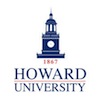 11. Howard University College of Pharmacy, Washington, DC
11. Howard University College of Pharmacy, Washington, DC
Established in 1867, Howard University sits on a 258-acre campus and it is home to more than 7,000 students. The school, which offers more than 100 programs throughout 13 colleges and schools, has been designated a Research University with High Research Activity by the Carnegie Foundation for the Advancement of Teaching.
One of Howard University’s top colleges is the College of Pharmacy. Established in 1868, the College of Pharmacy is home to nearly 200 students and it offers both traditional and online programs. Offerings include the Pharm.D., a Non-Traditional Pharm.D. (online), and a Ph.D. in Pharmaceutical Sciences with specializations in Medicinal Chemistry, Pharmaceutics, and Pharmacy Administration. The College also offers a dual Pharm.D./MBA degree.
Tuition for the Howard University College of Pharmacy is $12,952.50 per semester (or $28,000 per year for tuition + fees). Tuition for part-time students is $1,615 per credit hour.
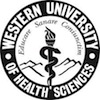 12. Western University of Health Sciences College of Pharmacy, Pomona, California
12. Western University of Health Sciences College of Pharmacy, Pomona, California
Western University of Health Sciences (WesternU) was established in 1977 as the College of Osteopathic Medicine of the Pacific (COMP). Today, WesternU is home to more than 3,500 students enrolled in the colleges of Osteopathic Medicine, Allied Health Professions, Graduate Nursing, Veterinary Medicine, Dental Medicine, Optometry, Podiatric Medicine, Biomedical Sciences (Graduate), and Pharmacy.
The Western University of Health Sciences College of Pharmacy was the fourth college of pharmacy to be established in the State of California. The College welcomed its first Pharm.D. class in the Fall of 1996. In addition to the Pharm.D., the College of Pharmacy offers a M.S. in Pharmaceutical Sciences and the International Post-Baccalaureate Pharm.D.
Tuition is $22,905 for the Pharm.D. program and $701 per credit hour for the M.S. in Pharmaceutical Sciences program.
 13. MCPHS University Boston, Boston, Massachusetts
13. MCPHS University Boston, Boston, Massachusetts
Massachusetts College of Pharmacy and Health Sciences University (MCPHS University) is the oldest university in the City of Boston. Established in 1823, the University is also the country's second oldest university of pharmacy. Home to more than 6,000 students, MCPHS University offers the Pharm.D., an accelerated Pharm.D., and M.S. and Ph.D. degrees in Medicinal Chemistry, Pharmaceutical Economics and Policy, Pharmaceutics, and Pharmacology.
The University also offers a M.S./Ph.D. in Pharmacology (dual degree), M.S. degrees in Pharmaceutical and Healthcare Business, Medicinal Chemistry, Clinical Research, and Pharmaceutics, and B.S. degrees in Biomedical Informatics, Pharmaceutical and Healthcare Business, Pharmaceutical Sciences, and Pharmacology & Toxicology.
Additional offerings include a Graduate Certificate in Health Policy, Regulatory Affairs, or Patient Safety, and a MPS in Patient Safety. Programs are available at the school’s Boston, Worcester, and Manchester campuses as well as online through recently launched MCPHS Online.
Tuition for the Pharm.D. program is $32,550 for 12-18 credit hours. Tuition for Graduate and Certificate programs is $1,020 per credit hour.
 14. Samford University McWhorter School of Pharmacy, Birmingham, Alabama
14. Samford University McWhorter School of Pharmacy, Birmingham, Alabama
Established as Howard College in 1841, Samford University began instruction with an enrollment of just 31 students. Today, with a student population of nearly 5,000 students, Samford University is the largest privately supported university in the State of Alabama.
Named a “Best Southeastern College,” by The Princeton Review, Samford University sits in a 212-acre campus and it offers more than 150 programs across 10 academic units including Arts, Arts & Sciences, Business, Divinity, Education, Law, Nursing, Kinesiology, Nutrition Science, and Pharmacy.
Samford University McWhorter School of Pharmacy was established in 1927 as the Department of Pharmacy. By 1936 the School had 96 students and five faculty members, making it the largest pharmacy school in the south. Today, McWhorter School of Pharmacy is home to nearly 500 students and 37 faculty members.
The School offers the Pharm.D, a Joint Pharm.D./MBA, and a Joint Pharm.D./Business Minor. Tuition is $1,356 per credit hour for less than 12 credits (each semester) and $16,690 for 12-21 credits (per semester).
 15. Lake Erie College of Osteopathic Medicine (LECOM) School of Pharmacy, Erie, Pennsylvania
15. Lake Erie College of Osteopathic Medicine (LECOM) School of Pharmacy, Erie, Pennsylvania
Lake Erie College of Osteopathic Medicine (LECOM) was established in 1992. The School is home to 2,200 students and it is the nation's largest medical college. Campus locations include Erie and Greensburg, Pennsylvania, and Bradenton, Florida.
LECOM houses the College of Medicine, the School of Dental Medicine, and the School of Pharmacy. Home to 950 students, the School pf Pharmacy offers the Pharm.D. with “two distinct learning pathways.” Students may choose to study at the Erie, PA. Location, which offers an accelerated three-year pathway or the Bradenton, FL., where students may choose the traditional four-year pathway.
Tuition for the LECOM School of Pharmacy in Erie, PA. is $24,500 per year for residents and non-residents. Tuition for the Bradenton, FL. campus is $21,490 per year for Florida residents, and $24,662 per year for non-residents.
Pages

- Facebook Like
- Google Plus One
- 195096 reads


